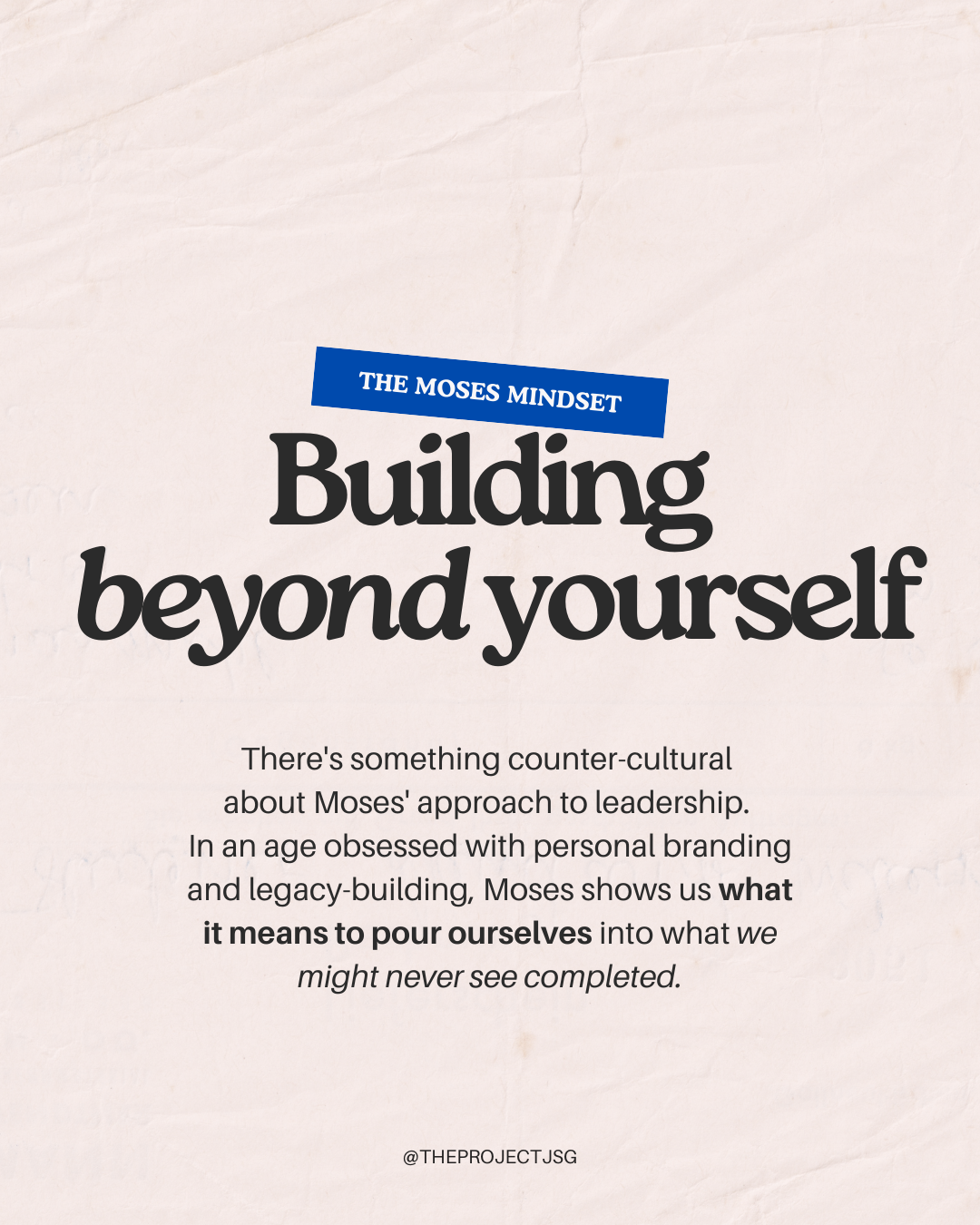Finishing Strong Despite Disappointment
Finishing Strong Despite Disappointment
One of leadership's deepest tests comes when facing personal disappointment. Moses led for 40 years, yet stood at Nebo's height knowing he wouldn't cross over. The very promise he helped others believe in would remain just beyond his reach. Like Christ in Gethsemane, Moses faced a moment where surrender meant letting go of what seemed rightfully his.
Yet in those final moments, we see remarkable leadership. Instead of bitter retirement, Moses poured himself into preparing Joshua. Instead of questioning God's fairness, he sang of God's faithfulness. Instead of undermining his successor, he blessed the next generation. His final acts weren't driven by what he would miss, but by what God would accomplish through others. This is the heart of kingdom leadership - dying to self so others might flourish.
Moses chose to steward his disappointment for God's glory. He didn't minimize his mistake at Meribah, but neither did he let it define his ending. He kept leading, kept teaching, kept blessing - even while carrying the weight of consequence. His farewell speeches in Deuteronomy reveal a heart more concerned with Israel's future than his personal legacy. In his surrender, we see echoes of Christ's "not my will, but Yours be done."
Perhaps the truest test of leadership isn't how we handle success, but how we process disappointment.
Do we withdraw when things don't go our way? Do we sabotage our successor because we won't see the victory? Or like Moses, do we choose faithful stewardship even when the story doesn't end as we hoped? Do we trust that God's seeming 'no' might be protecting His greater 'yes'?
As you sit with Jesus today, how are you processing your own leadership disappointments?
What would it look like to finish strong, not for recognition, but for His glory and others' good? What might He be asking you to surrender for the sake of His kingdom purposes?
Your response to disappointment may be your most powerful act of leadership yet. For in choosing faithfulness over fairness, in blessing when you could blame, you demonstrate what matters most: not where we end up, but who we become along the way. And in that becoming, we find ourselves looking more like Jesus.






Leave a comment
This site is protected by hCaptcha and the hCaptcha Privacy Policy and Terms of Service apply.